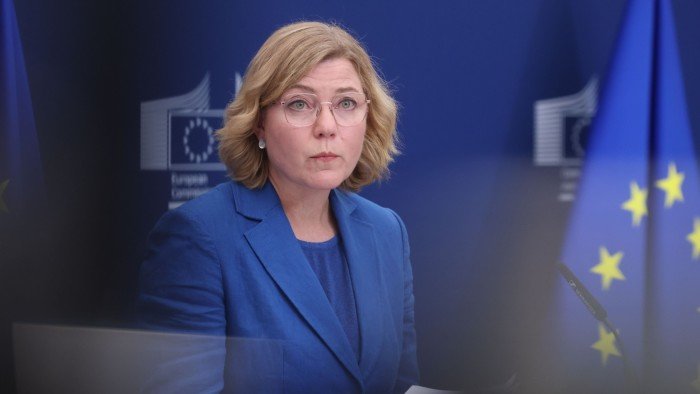Unlock the Editor’s Digest for free
Roula Khalaf, Editor of the FT, selects her favourite stories in this weekly newsletter.
The EU will set out plans on Wednesday to pool funding and expertise in quantum computing, in a bid to build a competitive European ecosystem in a technology seen as key to future economic leadership.
The move attempts to address financing gaps that risk undermining Europe’s efforts to develop a potentially transformative technology, just as the sector emerges from research to look for market opportunities.
Henna Virkkunen, the European Commission vice-president overseeing tech policy, told the Financial Times: “Quantum is something [in which] the European Union is already very strong, especially when we look at our scientific sector, but we also have promising start-ups.”
Quantum computing has the potential to solve problems beyond the reach of today’s computers, delivering changes with far reaching implications for economic and national security.
But Virkkunen said that financing opportunities, especially venture capital, were crucial for Europe’s sector. “Many European start-ups have to move to the US to scale up their business, and the main reason is access to finance.”
The measure was set to be one of the priority areas in the EU’s next seven-year budget, which the European Commission will present mid-July, the Finnish politician said.
Unlike conventional computers, which solve problems using bits, quantum computers use quantum bits that can process information at a much faster rate, potentially leading to huge advances in areas such as cyber security or military operations through faster processing. It also has the economic potential to transform whole industries, experts say.
The upcoming strategy aims to pool expertise, resource and knowledge to build a quantum ecosystem in the bloc, which saw its productivity gap with the US widen mostly because of the EU’s weakness in emerging technologies. Only four of the world’s top 50 tech companies are European.
Horizon Europe, the EU’s flagship funding programme for research, will continue to support quantum research. On top of that, the bloc is also preparing a Scale-Up Europe Fund together with private investors to help companies in the tech sector expand.
Virkkunen also pointed to the increased defence budgets in several EU countries, adding that this was “good news for our critical technologies like quantum or AI, also for our semiconductors, because the defence industry and critical technologies very much go hand in hand”.
The quantum strategy builds on Europe’s wider digital sovereignty agenda and its desire to become less dependent on large American tech companies.
“It’s crucial for our technological sovereignty that we are investing in AI, quantum and semiconductors,” Virkkunen said. “These are identified as critical technologies and it’s important that we are building up our own capacities here.”
The bloc on Monday also said its call for interest to build five AI gigafactories to develop cutting edge artificial intelligence models went beyond its expectations, yielding interest from 76 respondents for potentially investing up to €230bn in AI gigafactories.
Those large-scale infrastructures, which are four times as powerful as AI factories, are set to bring together supercomputers, data centres, users and developers.
“There’s huge interest to invest in the European Union and AI infrastructure,” Virkkunen said.
But at the same time, the bloc is struggling to agree on the exact timeline and conditions to implement its landmark artificial intelligence act, amid warnings from tech companies that the regulation could hinder innovation.




